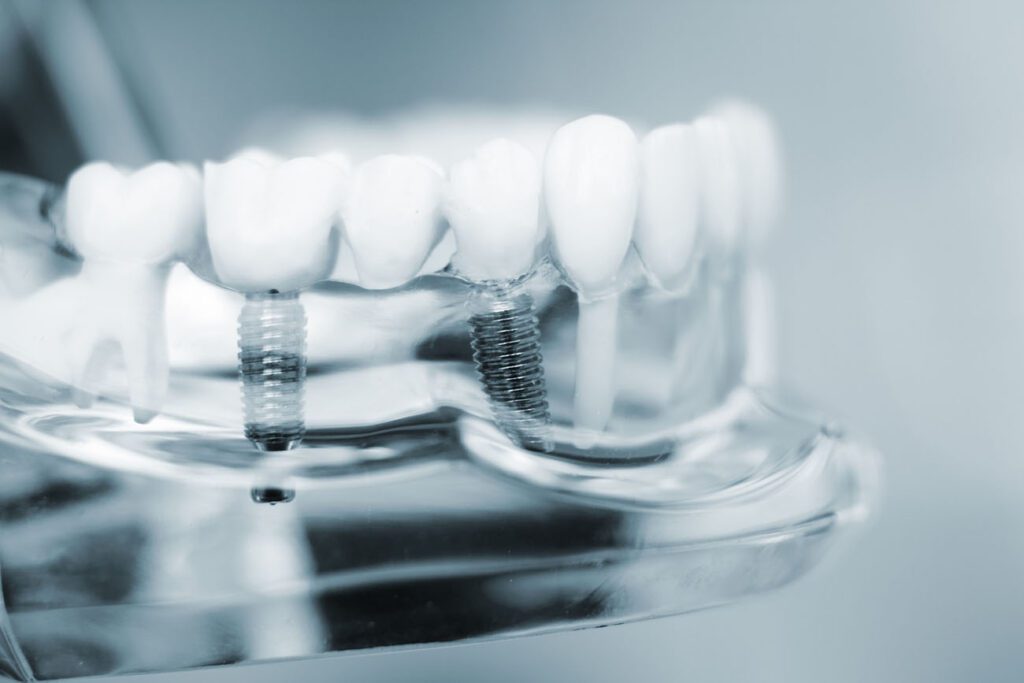If you’re missing a tooth or two, a dental bridge could be the solution you need to restore your smile. Bridges not only make your smile look whole again but also bring back the function of your teeth, helping you chew and speak with ease.
A bridge consists of one or more artificial teeth. The right choice depends on several factors like the location of the gap, the strength of nearby teeth, and your overall oral health. Understanding your options can make it easier to choose the bridge that works best for you.

What to Think About
When choosing a dental bridge, the location and number of missing teeth are key. For example, molars need a stronger bridge because they handle more pressure when you chew. The condition of the teeth next to the gap matters too. If they aren’t strong enough to support a traditional bridge, you might need an implant-supported bridge instead.
Dr. Uttma Dham will take a close look at your teeth, gums, and jaw to help you figure out the best option for your smile.
Talking with Your Dentist
Choosing a dental bridge starts with a conversation. Dr. Dham offers free consultations to new and existing patients. You will get all the information you need before making a decision. During your visit, she’ll go over the types of bridges available and explain how each one works.
Whether you’re leaning toward a traditional bridge or considering an implant-supported one, Dr. Dham will walk you through the pros and cons of each option. She’ll also explain what to expect during the procedure and how to care for your bridge. This is the perfect time to ask questions and share any concerns. You can trust Dr. Dham and her friendly team to guide you every step of the way.
Costs and Insurance
The cost of a dental bridge depends on the type you choose and the materials used. Traditional bridges are usually more affordable upfront, but implant-supported bridges tend to last longer. Some dental insurance plans cover part of the cost. It’s a good idea to check with your provider to see what’s included in your plan.
Caring for Your Bridge
To keep your dental bridge in great shape, good oral hygiene is a must. Brush your teeth twice a day and floss daily to keep your gums and the area around your bridge clean. Dr. Dham might suggest special floss or tools to make cleaning easier.
Regular dental check-ups are also important. During your visits, Dr. Dham will make sure your bridge is in good condition and that the surrounding teeth and gums stay healthy. Avoid chewing on hard items like ice or tough foods that could damage your bridge.
By following Dr. Dham’s care tips, your dental bridge can last for many years. Choosing the right dental bridge is an important step to getting the results you want. Dr. Uttma Dham and her team are here to provide expert care and advice to help you make the best choice. Give us a call at (954) 251-0640 to schedule your appointment today.
Types of Dental Bridges at Westside Dental Center
At Westside Dental Center, we offer two main types: traditional bridges and implant-supported bridges. Each has its own benefits, and understanding the differences can help you decide which one suits you best.
Traditional Bridges
Traditional bridges are the most common type of dental bridge. They use a false tooth (or teeth) that dental crowns hold in place. These crowns are placed on the natural teeth next to the gap, acting as anchors.
This type of bridge is strong and works well for areas like molars that handle a lot of chewing. However, the dentist needs to remove some enamel from the adjacent teeth for the crowns to fit. While traditional bridges are reliable, this can be a drawback if those nearby teeth are otherwise healthy.
Implant-Supported Bridges
Implant-supported bridges are anchored to dental implants instead of crowns. An oral surgeon places these implants in the jawbone to create a sturdy for the bridge.
This option is ideal if you’re missing several teeth or if the teeth near the gap aren’t strong enough to support a traditional bridge. Implant-supported bridges don’t depend on your other teeth, so they’re a great choice for long-term stability.
Keep in mind, the process for implant-supported bridges takes time. It involves a surgical procedure, and months of healing. The implants need a few months to bond with the jawbone before the dentist can place the bridge.
Let’s Find the Right Bridge for You
Choosing between a traditional and implant-supported bridge depends on your oral health and personal needs. Dr. Dham and her team at Westside Dental Center are here to help you make the best choice for a strong, healthy smile.
Call us at (954) 251-0640 to schedule an appointment with Dr. Uttma Dham. She’ll explain your options and help you choose what works best for you.
